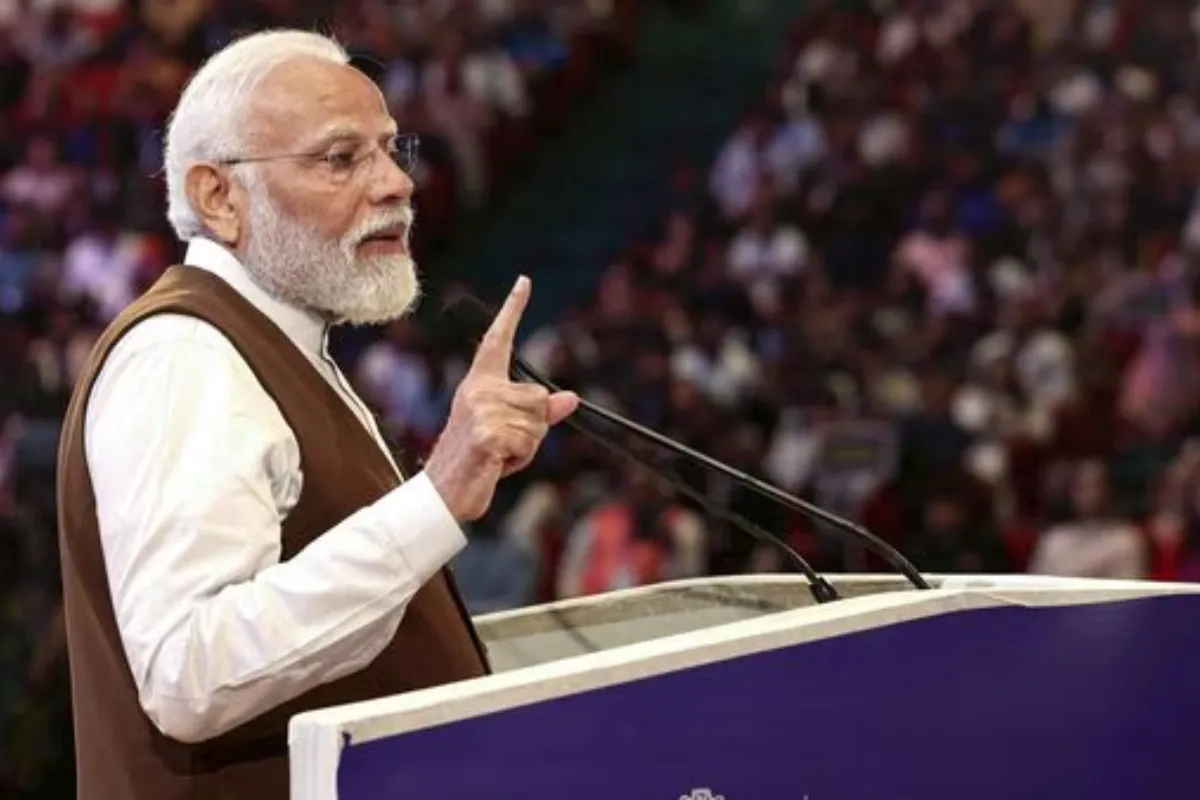Prime Minister Narendra Modi recently provided a thought-provoking perspective on the intersection of modern fashion and ancient Indian artistry during the inaugural National Creators’ Awards ceremony held at Bharat Mandapam in Delhi. In a speech that blended historical insight with contemporary relevance, PM Modi captivated audiences with his reflections on the timeless nature of fashion trends and their deep-rooted connections to India’s cultural heritage.
PM Modi takes Fashion Through Time
During his address at the event, PM Modi drew attention to the perception of mini skirts as a symbol of modernity. He intriguingly connected this contemporary fashion trend with ancient Indian sculptures found at the renowned Sun Temple in Konark. Pointing out the presence of statues sporting mini skirts and accessories like purses on their arms in centuries-old temples, PM Modi underscored how India’s artistic heritage has long anticipated and embraced elements of modern fashion.
India’s Cultural Heritage in Fashion
PM Modi’s emphasis on India’s historical role as a fashion innovator resonates deeply with the country’s rich cultural heritage. Throughout history, India has been celebrated for its diverse textiles, intricate embroidery, and vibrant colors, which have captivated the imagination of people around the world. From the luxurious silk sarees of Varanasi to the intricate Bandhani patterns of Gujarat, Indian attire reflects centuries of craftsmanship and tradition.
By advocating for a renewed focus on promoting traditional Indian attire on the international stage, PM Modi highlights the potential for Indian fashion to serve as a powerful cultural ambassador. Traditional garments not only showcase India’s unique heritage but also provide a platform for artisans and weavers to preserve age-old techniques and skills passed down through generations.
Moreover, PM Modi’s call for showcasing India’s cultural identity through traditional wear aligns with the growing global interest in sustainable and ethically sourced fashion. Indian textiles, often handcrafted using eco-friendly materials and techniques, offer a compelling alternative to mass-produced fashion, resonating with consumers seeking authenticity and environmental consciousness.
Why India Follows Western Culture
India’s inclination towards embracing Western culture can be attributed to several practical factors. Firstly, globalization and the interconnectedness of the world have facilitated the exchange of ideas, lifestyles, and cultural practices. As Western media, including films, television shows, and social media platforms, permeate Indian society, they often influence perceptions of modernity, success, and social norms.
Moreover, Western nations are often recognized for their contributions to innovation, education, and lifestyle trends. This recognition makes aspects of Western culture appealing to many Indians who aspire for personal and professional growth. The admiration for Western culture stems not from viewing Western countries as superior, but rather from acknowledging their achievements in certain fields and the opportunities they offer for advancement and development.
Additionally, the influence of globalization has led to the adoption of Western practices in various aspects of daily life, including fashion, entertainment, and dietary habits. The prevalence of multinational corporations and brands further reinforces the integration of Western culture into Indian society, as products and services cater to global consumer preferences.
Furthermore, urbanization and demographic shifts have contributed to the spread of Western culture in India. As urban centers experience rapid development and modernization, they become hubs for cultural exchange and convergence, where Western and Indian traditions coexist and interact.
Tradition and Eve Teasing – Addressing Societal Realities
Despite the historical presence of elements like mini skirts and handbags in our tradition, we still grapples with societal issues such as eve teasing and violence against women. These challenges highlight the need for our society to prioritize growth and development in addressing deep-rooted cultural attitudes and behaviors.
While our tradition may have depicted fashion choices that resonate with contemporary trends, the prevalence of eve teasing and other forms of harassment underscores the disconnect between our cultural heritage and the values we uphold as a society. Despite the influx of Western influences, including the adoption of fashion trends, our failure to fully embrace and respect our own culture becomes evident in instances of gender-based violence and discrimination.
In light of these challenges, it becomes imperative for us to prioritize societal growth and development, focusing on fostering respect, equality, and safety for all individuals. By acknowledging and addressing the discrepancies between our cultural heritage and societal norms, we can work towards building a more inclusive and progressive society that values and protects the rights and dignity of every individual, regardless of gender or cultural background.
